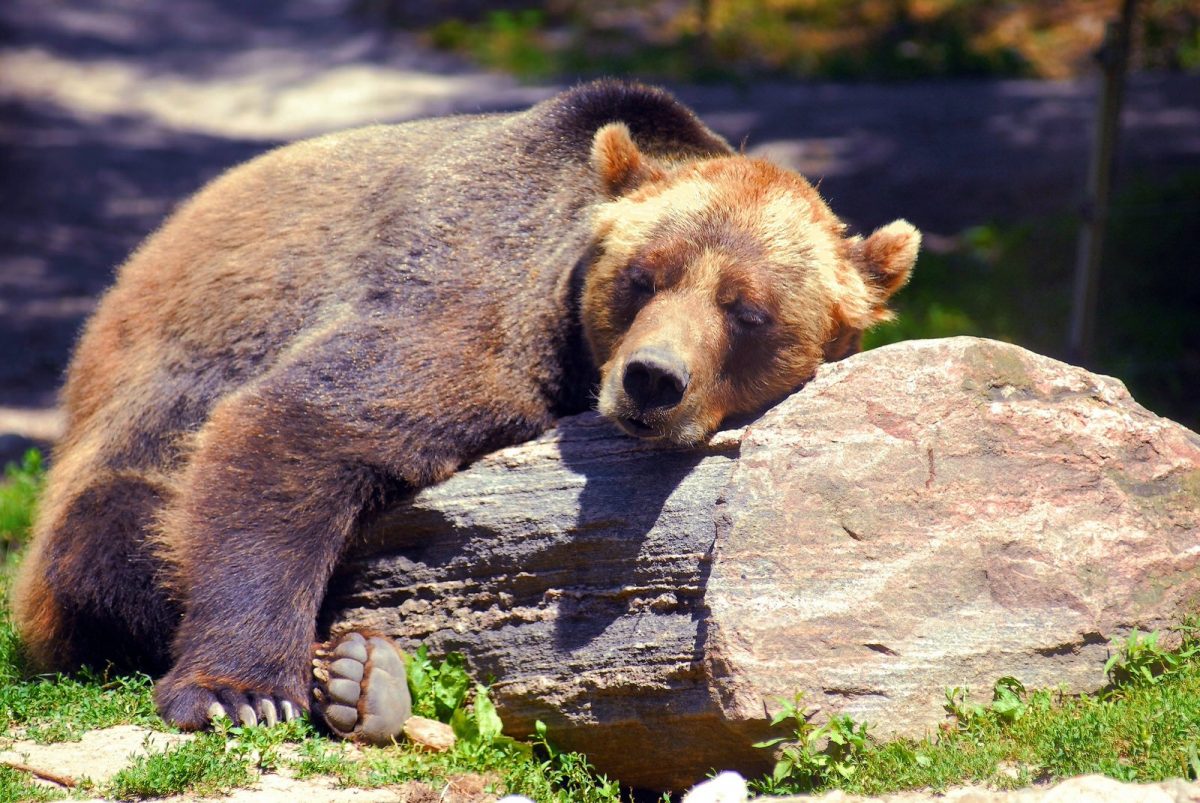Animals and Sleep Part I: Who Sleeps the Least?

Animals and Sleep
I’m having a little fun with a new side-trip in my research: animals and sleep. Scientists think all animals sleep—though we may never know for sure whether all animals dream. In this new blog series, we’ll take a look at some of the animals that sleep the least, and the ones that sleep the most… and why. We’ll learn a little about sleep research on animals that’s impacted our knowledge on human sleep. Just for kicks, we’ll even explore sleeping with animals: how sleeping with a pet can help (or hurt) your chances of getting good ZZZs.
Animal Insomniacs
Some animal species sleep very little. In some cases it’s because of threats from predators; in others, dietary needs may mean the animal literally spends most of his life eating and has little time for sleep. Here are some of the animal kingdom’s most well-known insomniacs.
- Giraffes may sleep only 30 minutes each day, split into several separate dozing sessions. These massive animals use most of their time foraging for the food they need to support their huge bodies, and have been known to go weeks between naps. In prime circumstances, they may sleep as much as five hours out of 24.
- Baby orcas and baby bottlenosed dolphins may not sleep at all during the first few months of life, as their brains mature. Older marine mammals have the unique ability to keep one brain hemisphere active as they sleep, so they can surface to breathe while still snoozing.
- Migratory birds (at least some species) use the same means of “unihemispheric sleep” as marine mammals to stay in flight during long migration flights. Other species take power naps that may last only microseconds.
- Elephants may sleep four hours or less each day, and spend the rest of their time searching for food and water. These huge pachyderms need all that awake time to find the nutrients they need to keep those massive bodies going.
- Horses often sleep standing up (as do elephants), and may sleep three hours or less every day. As wild animals moving in herds, horses are always wary of predators and ready to startle into action at a moment’s notice. On the other hand, they can spend hours or days resting peacefully, preserving energy to help balance the little time they sleep with the possibility of “fight or flight.”
Whether these animals are wary of predators, constrained by biological need, or adapting to particular events, these animals all have a unique relationship to sleep. In my next installment on “animals and sleep,” we’ll have a look at animals that sleep the most—far more than humans sleep.
Author Bio: +Michelle Gordon is a sleep expert who researches and writes about sleep and health, and is an online publisher for the latex mattress specialist Latexmattress.org.


